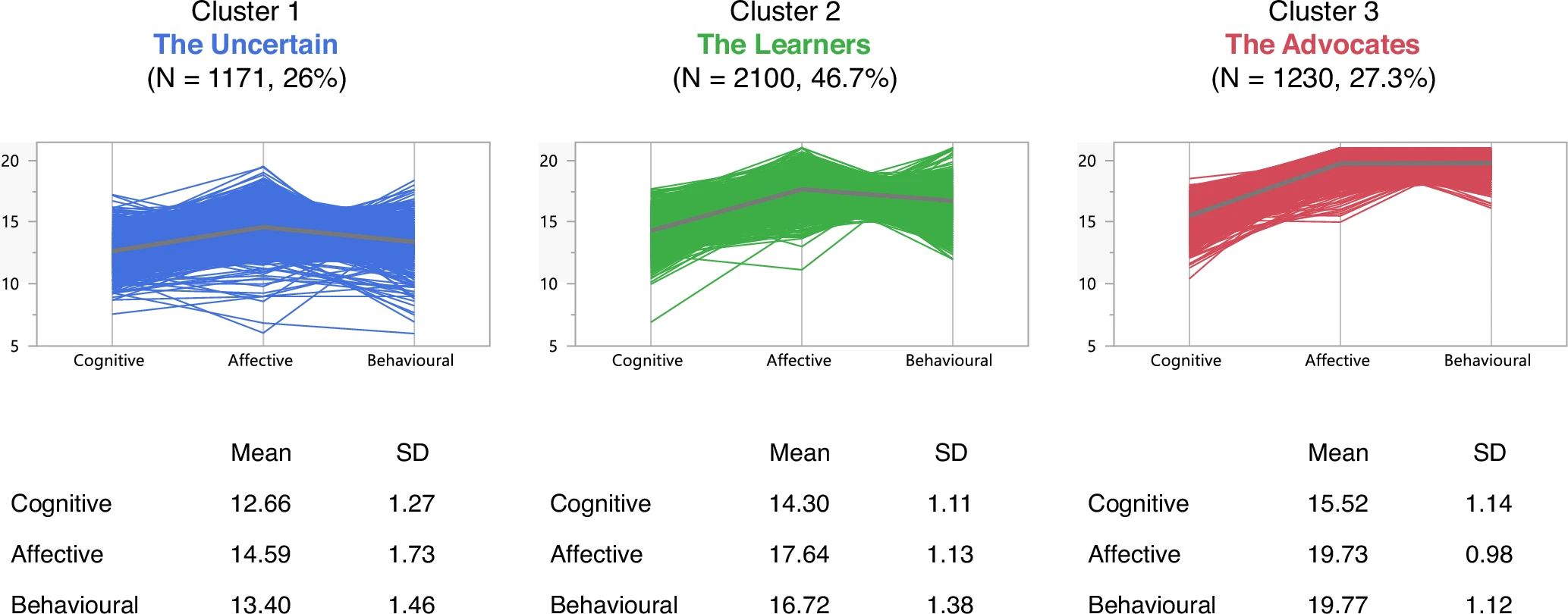 News
News
GPSS Doctoral Student Publishes Study on Climate Change Conceptions among Indonesian Youth in npj Climate Action
Kelvin Tang, a Graduate Program in Sustainability Science doctoral student, has published a study in npj Climate Action titled "Conceptions of climate change across cognitive, affective, and behavioural dimensions among adolescents: Insights from Indonesian upper-secondary students". The study examined how Indonesian adolescents understand climate change across cognitive (knowledge), affective (socio-emotion), and behavioural (action) domains.
His study reveals that Indonesian upper-secondary students show stronger emotional engagement and willingness to take action compared to their levels of knowledge or awareness associated with climate change. Based on data from 4,501 students across four municipalities, three distinct student profiles emerged: the Uncertain (26%), the Learners (46.7%), and the Advocates (27.3%). The study also identifies significant socio-cultural influences, including grade level, religion, ethnicity, and personal values, as key factors shaping students' conceptions. These findings highlight the need for targeted and differentiated educational strategies to engage each group effectively, as suggested by the learner-centred approach in climate change education. In Indonesia, previous studies have found that education has not been particularly successful in nurturing proactive agents of change who are fully engaged with climate action. Therefore, reimagining climate change education to make it more relevant and effective is crucial, with one way being to tailor it to the specific profiles of learners.

For this study, Kelvin Tang conducted a large-scale survey incorporating validated scales on knowledge, beliefs, attitudes, concern, hope, willingness to act, and self-efficacy. The survey was administered to upper-secondary students across Jakarta, Surabaya, Malang, and Balikpapan. The collected data were analysed using descriptive statistics, multiple linear regression to assess the influence of background variables, and cluster analysis to identify learner typologies.
The findings provide timely insights for policymakers, educators, and curriculum designers seeking to strengthen climate change education in Indonesia and similar contexts. By highlighting the importance of learner-centred and culturally responsive approaches, this study contributes to global discussions on climate change education, particularly from underrepresented Global South perspectives.
The full study can be accessed here: https://doi.org/10.1038/s44168-025-00245-2
Readers are invited to explore the research and engage in discussions on climate change education.

 Japanese
Japanese